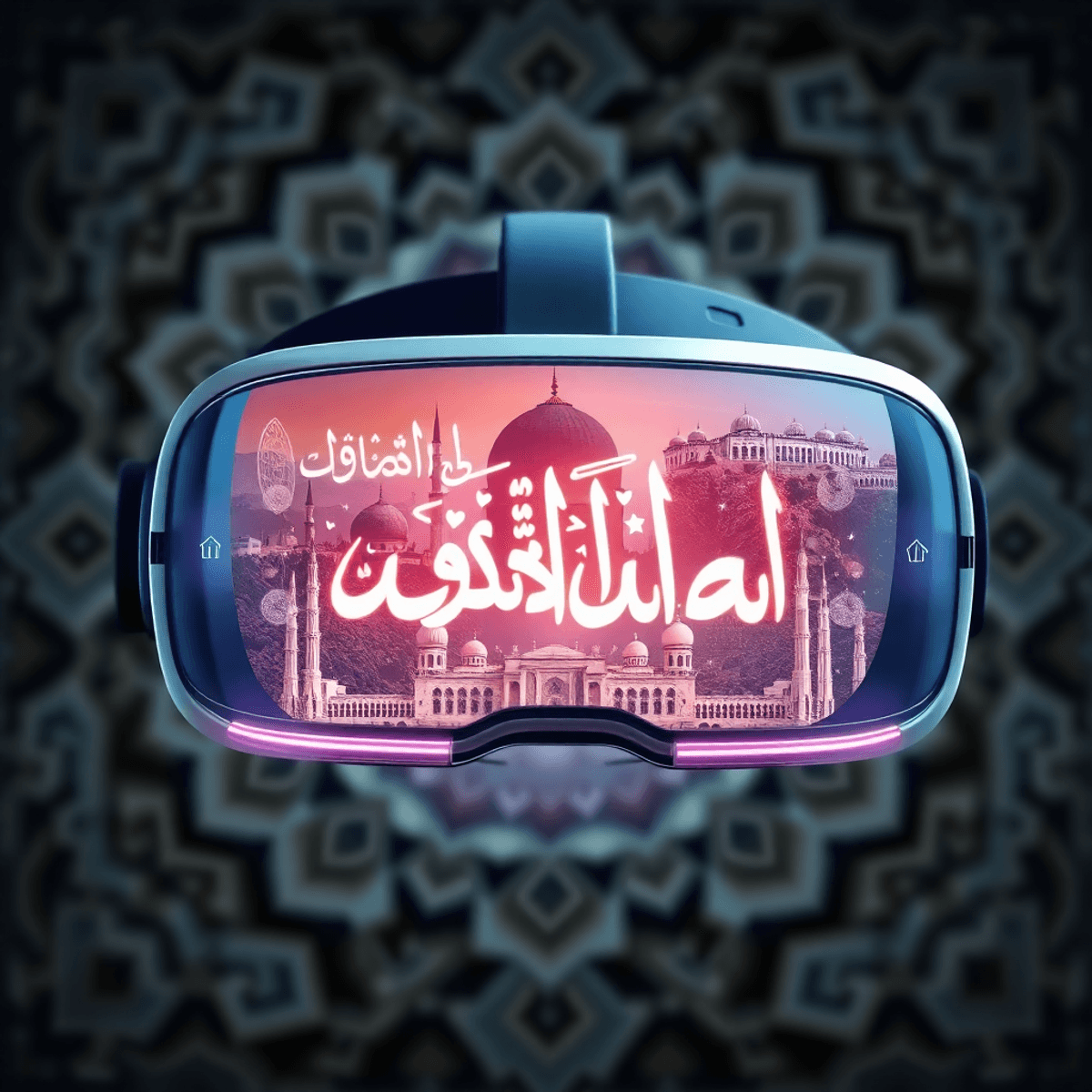
The Sheikh Abdulla Bin Zaid Al Mahmoud Islamic Cultural Center is dedicated to preserving and promoting Islamic values through education and cultural initiatives. Its mission is to foster understanding, dialogue, and respect within the community using innovative methods.
As part of its educational and cultural outreach, the Center recently engaged hundreds of participants in two Virtual Reality (VR) events. These VR experiences showcased how advanced technology can enhance appreciation for Islamic heritage by providing immersive, interactive learning environments. Participants had the opportunity to explore captivating stories that highlight Islamic teachings and history in ways that traditional methods cannot achieve.
This article will discuss:
Learn how VR is transforming cultural education at the Sheikh Abdulla Bin Zaid Al Mahmoud Islamic Cultural Center.
Virtual Reality (VR) technology plays an important role in enhancing learning about Islamic history and culture. Through immersive experiences, participants can engage with historical settings, artifacts, and narratives in ways that traditional methods cannot replicate. The benefits of such immersive VR experiences in education include:
The Sheikh Abdulla Bin Zaid Al Mahmoud Islamic Cultural Center adopts an innovative approach by using VR as a tool for cultural dialogue and mutual understanding. By leveraging modern technology, the Center bridges the gap between generations and fosters a deeper appreciation for Islamic values and heritage. This progressive use of VR not only educates participants but also facilitates meaningful conversations about the rich cultural tapestry of Islam.
The Sheikh Abdulla Bin Zaid Al Mahmoud Islamic Cultural Center organized two major VR events that engaged over 240 participants, demonstrating the power of immersive technology in cultural education. One key event took place at the Shakespeare International School, where 144 students participated in an interactive programme conducted over two days. Sessions were held separately for male and female students, allowing tailored discussions around Islamic history and values through virtual reality.
Simultaneously, the Center showcased its VR offering at the Journey to Makkah exhibition hosted by the Museum of Islamic Art. Approximately 100 visitors experienced a rich, immersive portrayal of Makkah’s transformation during the prophetic era. The exhibition highlighted how Islam shaped a civilization rooted in human dignity and purpose.
These VR events went beyond passive viewing. Participants actively engaged with content that brought historical narratives to life, fostering deeper understanding through visual and sensory immersion. The interactive nature made complex themes accessible, especially for younger audiences, enhancing retention and emotional connection to Islamic heritage.
By combining educational storytelling with cutting-edge VR technology, these events created memorable learning environments that encouraged reflection on justice, responsibility, and cultural identity within an Islamic context.
The VR films presented by the Sheikh Abdulla Bin Zaid Al Mahmoud Islamic Cultural Center delve deeply into life before and after Islam, highlighting a transformative period in history. Participants witness a vivid contrast between pre-Islamic customs marked by superstition and social inequalities, and the profound changes introduced with the advent of Islam.
These themes serve an educational purpose by making complex historical and religious concepts accessible to youth. The immersive nature of VR helps participants internalize these lessons more effectively than traditional methods, fostering cultural awareness and respect for Islamic values. This approach aligns with the Center’s broader mission as part of its educational and cultural outreach to engage hundreds of participants through innovative Virtual Reality events.
The films not only inform but also inspire reflection on the lasting impact of Islam’s principles in shaping ethical societies.
The Sheikh Abdulla Bin Zaid Al Mahmoud Islamic Cultural Center complemented its VR events with a selection of carefully crafted educational materials. These resources included English-language booklets such as Understanding Islam, The Children’s Book, and The Mosque for Children. Each publication was designed to extend the learning beyond the virtual experience, offering clear explanations of Islamic principles and history suitable for young audiences and newcomers alike.
Multilingual publications played a vital role in reaching Qatar’s diverse population. By providing materials in multiple languages, the Center ensured accessibility for participants from different linguistic backgrounds, fostering inclusivity within the educational outreach. This approach helped bridge cultural gaps and supported effective communication of Islamic values in a multicultural environment.
Participants responded positively to these supplementary resources. Feedback highlighted appreciation for the clarity and engaging presentation of complex subjects in a way that complemented the immersive VR content. Many noted that having tangible materials to review at their own pace deepened their understanding and encouraged further exploration.
Sultan bin Saad Al Badr, a key figure at the Sheikh Abdulla Bin Zaid Al Mahmoud Islamic Cultural Center, has a clear vision for combining modern technology with traditional values. He emphasizes that the Center’s mission is to use innovative tools like Virtual Reality to effectively promote Islamic values in today’s society.
The impact on the Qatari community goes beyond education; it encourages a shared sense of identity rooted in respect and knowledge. Sultan bin Saad Al Badr’s leadership demonstrates how visionary approaches can transform cultural education into dynamic experiences that inspire participation and reflection across different age groups and backgrounds.
The cultural outreach programs by Sheikh Abdulla Bin Zaid Al Mahmoud Center demonstrate the transformative potential of Virtual Reality in Islamic education. Engaging hundreds of participants through immersive VR events reveals how technology can deepen understanding of Islamic values and history.
Key opportunities lie ahead to:
Such efforts will reinforce the Center’s role as a pioneer in combining tradition with innovation. Harnessing VR as an educational tool supports not only knowledge transfer but also fosters empathy, dialogue, and cultural appreciation. The success of these recent events underscores how immersive experiences can make Islamic heritage accessible and meaningful in today’s digital era.
This approach sets a promising precedent for future projects aiming to bridge cultures through technology-driven learning.

